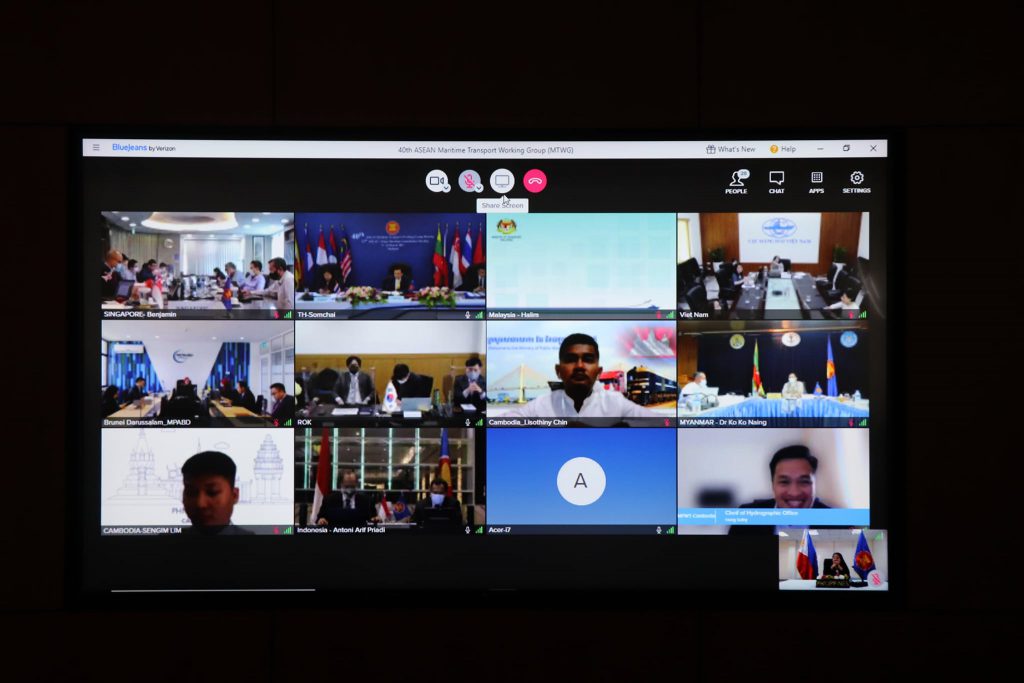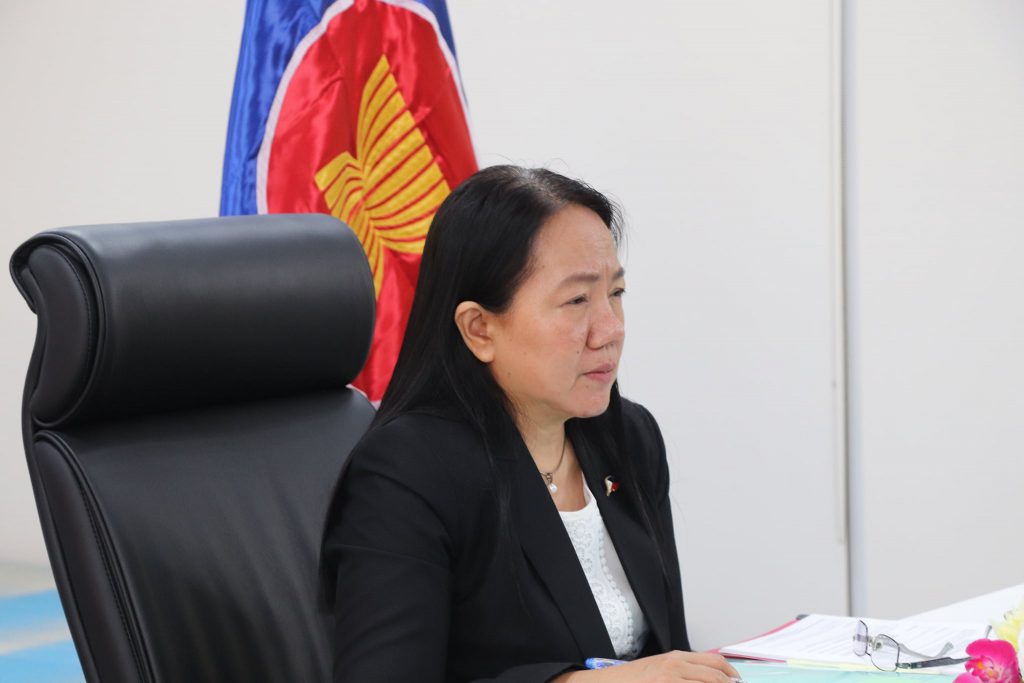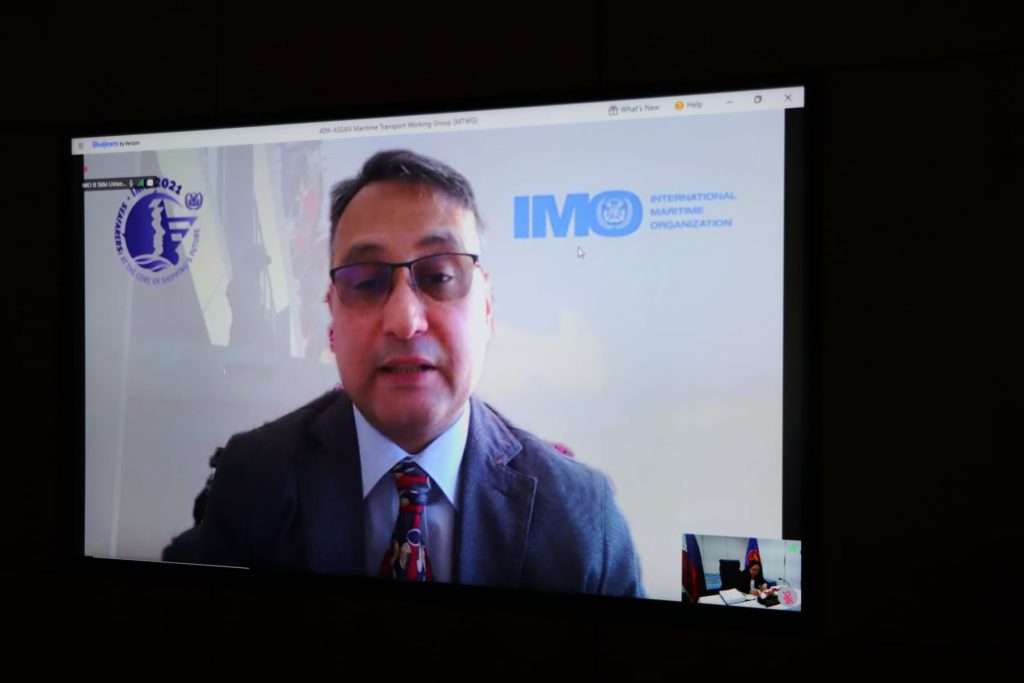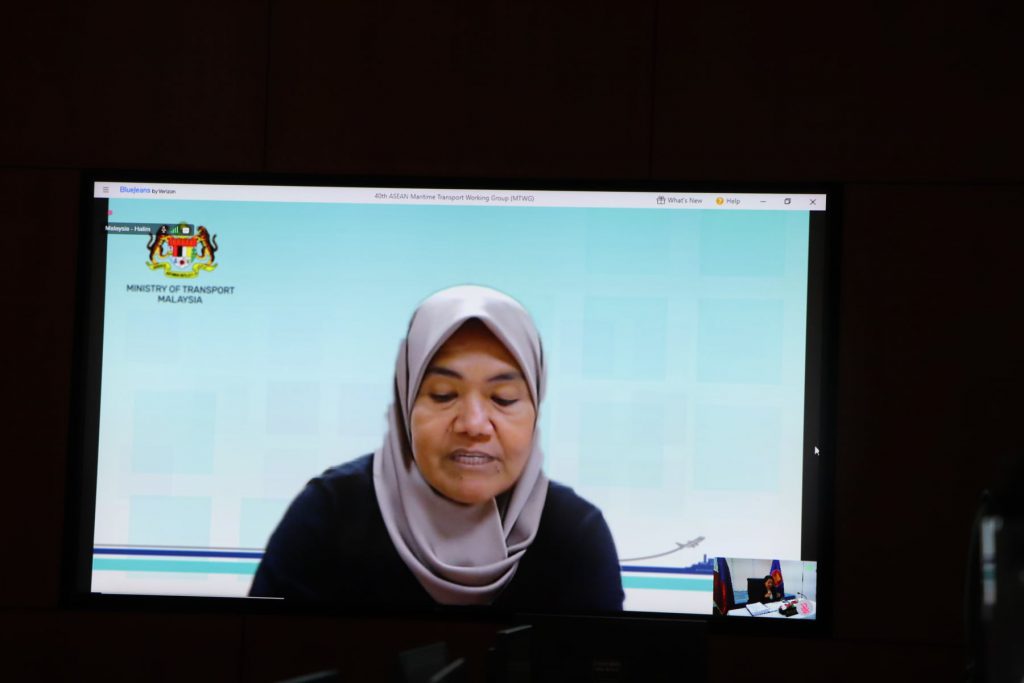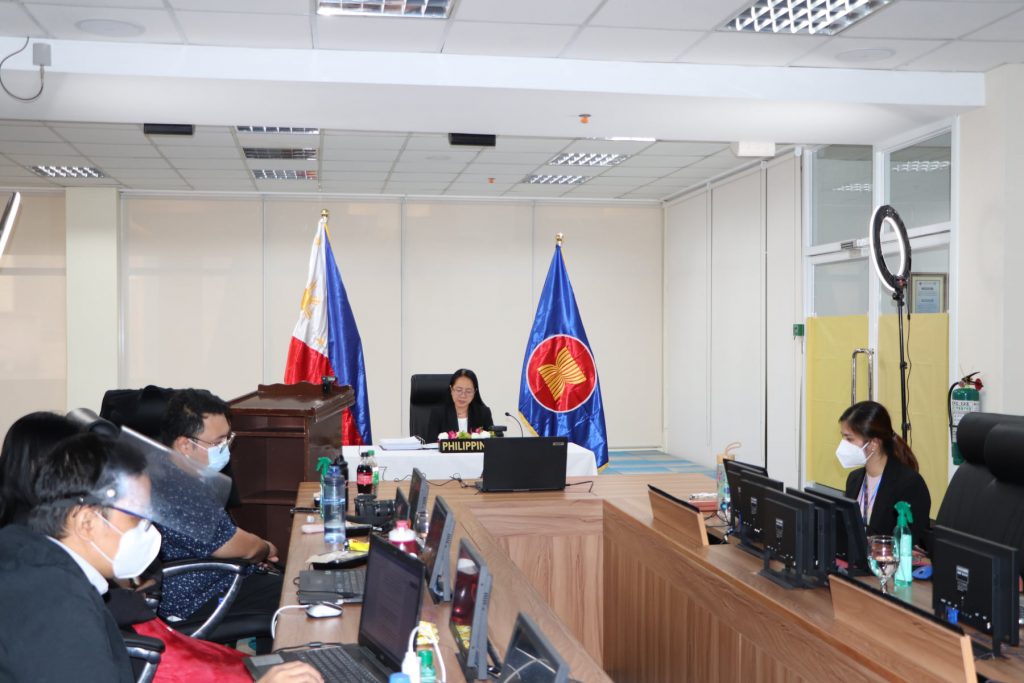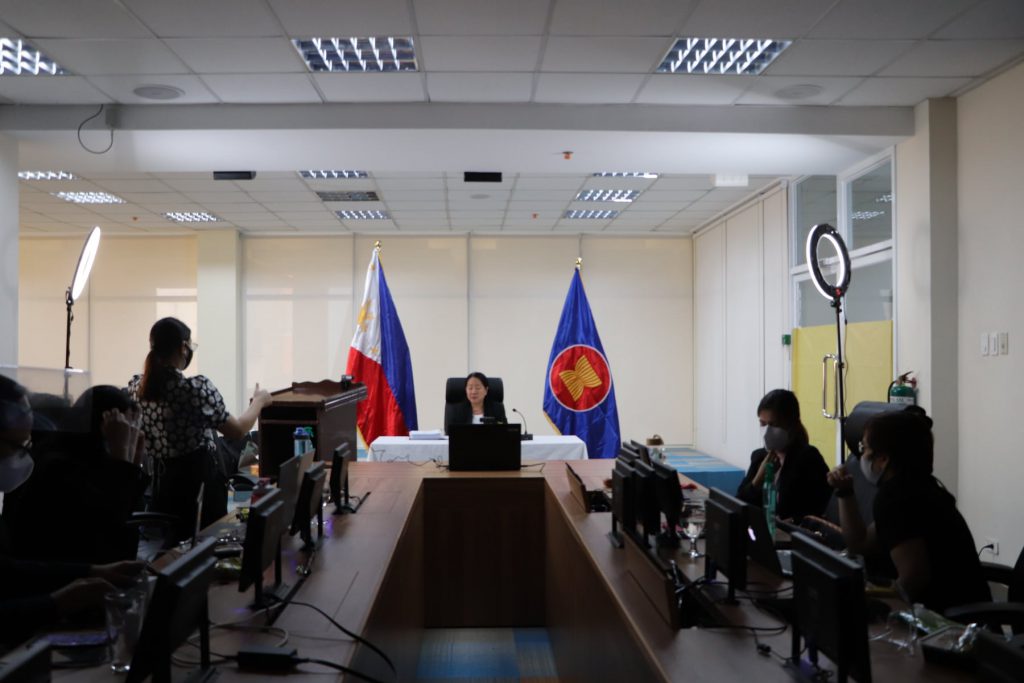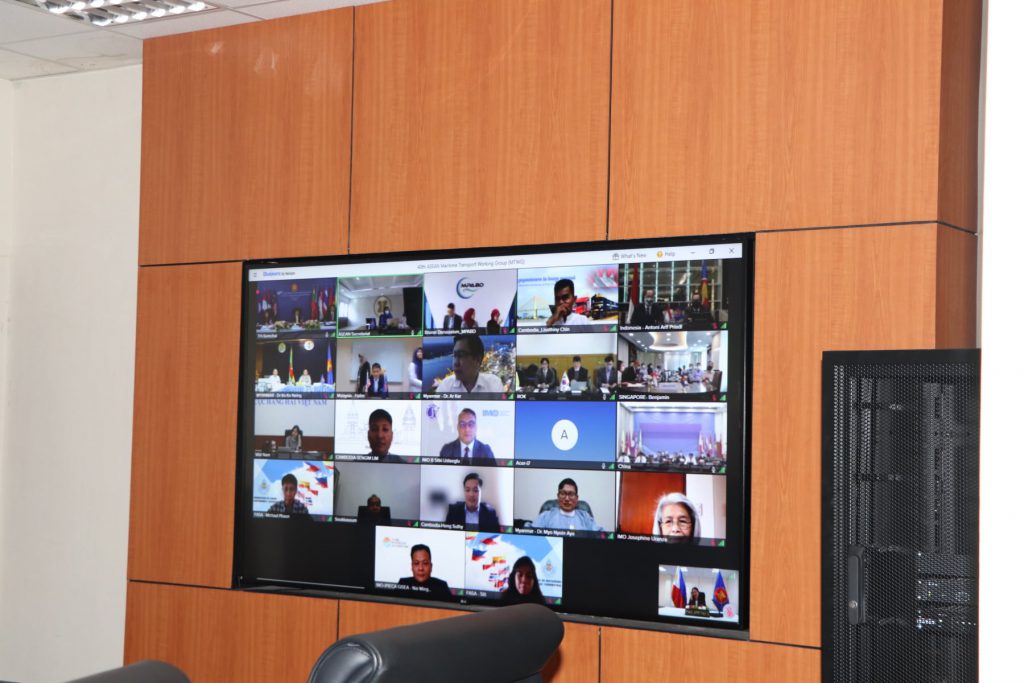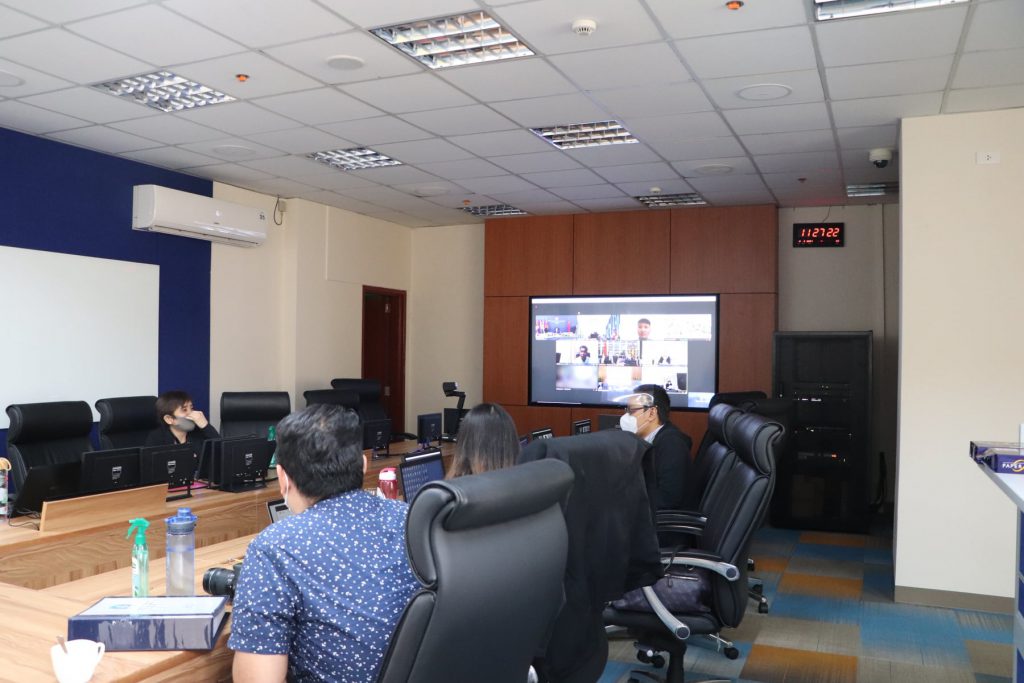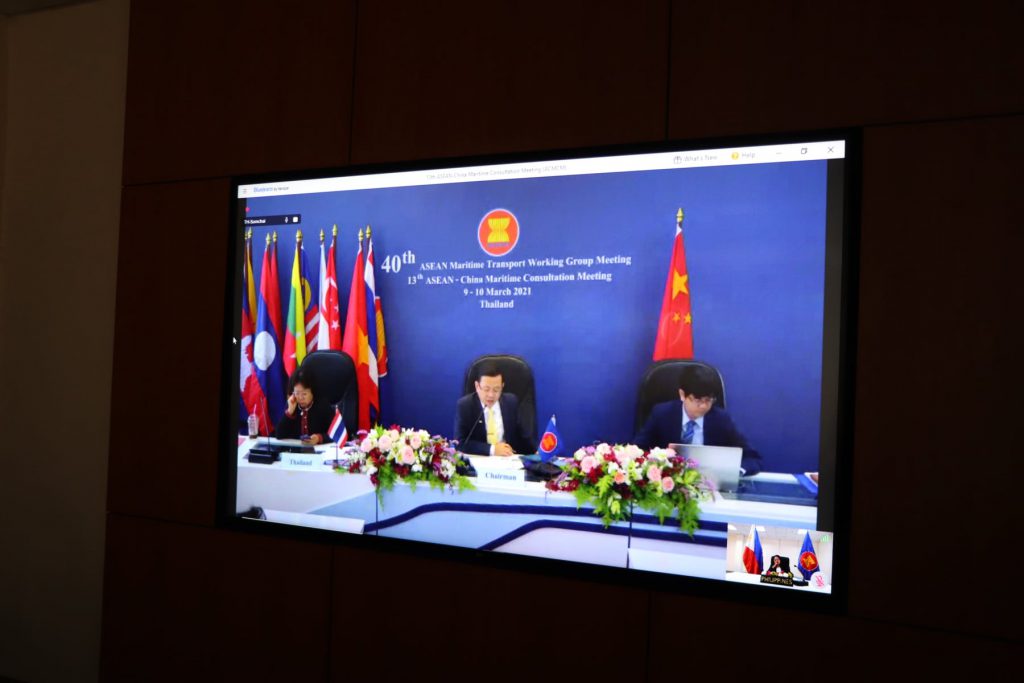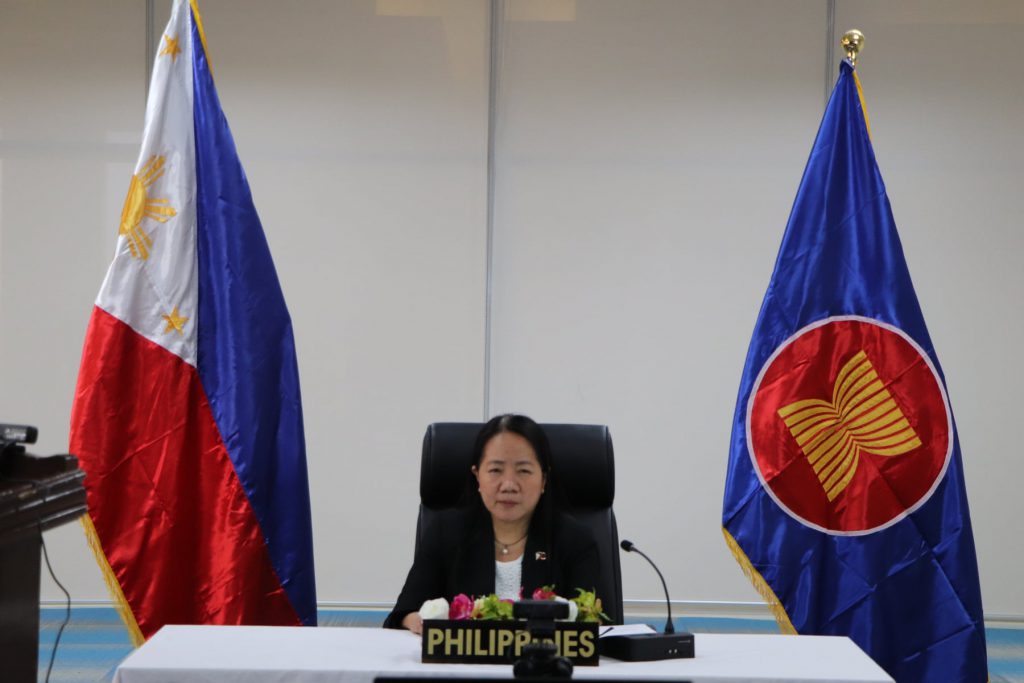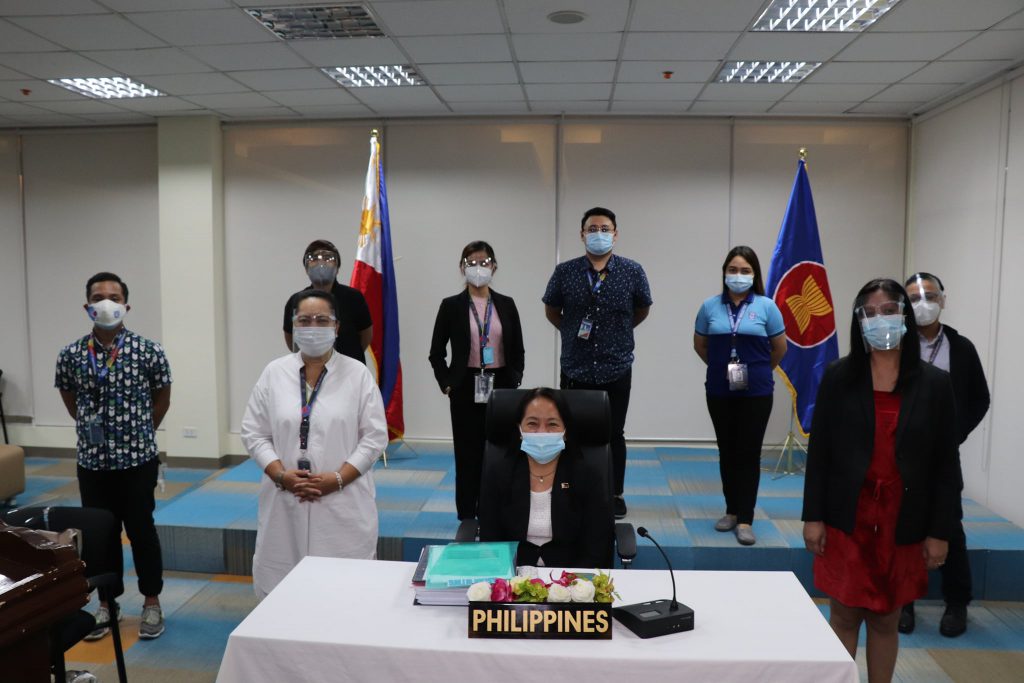Upholding its commitment in boosting regional cooperation and technological exchange, the Maritime Industry Authority (MARINA) led the Philippine delegation during the 40th ASEAN Maritime Transport Working Group (MTWG) and 13th ASEAN-CHINA Maritime Consultation Meeting (ACMCM) held on 09 to 10 March 2021 via videoconferencing.
Headed by Ms. Precila C. Jara, Officer-In-Charge of the MARINA’s Overseas Shipping Service (OSS), the Philippines shared its plans, updates, and interventions regarding port and land transport infrastructure development, capacity improvement of the ASEAN network ports, Davao-General Santos-Bitung Route Ro-Ro operation, policies/best practices on the improvements of the quality and efficiency of the Safety, Health and Environmental (SHE) management in ports, ASEAN Green Ship Strategy, best practices on maintaining efficient port operations, as well as on crew change and seafarers’ repatriation during pandemic or crisis, ASEAN-China Maritime Transport Studies, and ASEAN-India Maritime Transport Cooperation Agreement.
Port and Land Transport Infrastructure Development
During the 40th ASEAN MTWG, the Philippines expressed its commitment in advancing the development of port infrastructure projects across the archipelago, taking into consideration the importance of the said projects in the inter-zonal movement of people and goods across the country.
“It is our commitment to ensure the efficient and effective movement of goods as well as enhance maritime connectivity and mobility, including better port access, despite the unprecedented impact of the current pandemic,” Mr. Jara said.
The Philippine delegation likewise shared to the ASEAN Member States that the Philippine Ports Authority (PPA) has already completed 27 projects wherein 16 of these are set to be inaugurated soon. In addition, more projects are underway which are expected to benefit the people of Luzon, Visayas and Mindanao.
Capacity Improvement of the ASEAN Network Ports
Amidst the country’s fight against the COVID-19 pandemic, the port authorities have continued to work on the progress and completion of projects, including those in the nine (9) identified ASEAN ports, in order to meet local and global trade and tourism demands of the future while ensuring the safety of the maritime workers. The nine (9) ASEAN ports are the Manila International Container Terminal, Manila South Harbor, Batangas Port, Davao Port or Sasa Wharf, Port of Zamboanga, Port of Cagayan de Oro, Port of Cebu, Port of Iloilo, and Port of General Santos.
Davao-General Santos-Bitung Route Ro-Ro Operation
Ms. Jara informed the ASEAN Member States that coordination between the Philippines and Indonesia is continuous to ensure the sustainability of the Davao-General Santos-Bitung Route particularly on the trade aspect. She also added that both private and public sectors have initiated consultations to address the cargo volume requirements.
Quality and Efficiency of the SHE Management in Ports
The Philippine delegation reported in the 40th ASEAN MTWG that the Philippines, through the PPA, has nine (9) ports implementing the Integrated Management System, while 15 ports, including the PPA-Head Office, are certified under the Quality Management System. Moreover, the PPA likewise ordered the mandatory planting of trees and mangroves for every contract, accreditation and permits issued by the said agency.
The Philippine delegation also shared its policies and practices in relation with Safety, Health and Environmental (SHE) management.
ASEAN Green Ship Strategy
In relation with the ASEAN Green Ship Strategy, the Philippines, through the MARINA, issued MARINA Circular No. SR 2020-06 in November 2020, which aims to ensure that all Philippine-registered ships comply with the sulphur limit on fuel oil in compliance with MARPOL 73/78 Annex VI. Moreover, additional circulars on Fuel Oil Consumption Data collection, and Energy Efficiency Design Index are currently being formulated.
Likewise, MARINA is coordinating with an offshore plant engineering cooperative for possible collaboration regarding hybrid ships, energy efficiency, and alternative fuels.
Best Practices During COVID-19 Pandemic
Recognizing the global impact of the pandemic to the economy, health systems, transport and trade facilitation, as well as to the lives of the people, the Philippines expressed its support on the implementation of the sharing of best practices in maintaining efficient port operations, as well as on crew change and seafarers’ repatriation during pandemic or crisis.
“This exchange of information is very timely and can be vital as we continue to address the old and new challenges of the maritime sector. Rest assured that the Philippines will actively participate in this endeavor and contribute to the discussion of the MTWG,” Ms. Jara highlighted.
ASEAN-China Maritime Transport Studies and ASEAN-India Maritime Transport Cooperation Agreement
In line with ASEAN’s project proposal on the conduct of the ASEAN-China Maritime Transport Study, the Philippine delegation informed the Member States that consultations are still ongoing, particularly with regards to the budget aspect.
On the other hand, the ASEAN-India Maritime Transport Cooperation Agreement is still under discussion of the ASEAN Member States.
ASEAN-China Maritime Transport Study aims to assess economic benefits of shipping network and identification of possible cooperation areas between ASEAN and China.
Meanwhile, the ASEAN-India Maritime Transport Cooperation Agreement is intended to strengthen maritime connectivity between India and ASEAN.
40th ASEAN MTWG
The 40th ASEAN MTWG aims to discuss the decisions made by the higher ASEAN transport sectoral bodies in 2020, progress of implementation of maritime-transport related measures under the Kuala Lumpur Transport Strategy Plan, new initiatives, working groups’ work plan, cooperation with transport-affiliated private sector organizations and dialogue partners, and ASEAN’s partnership with the IMO.
